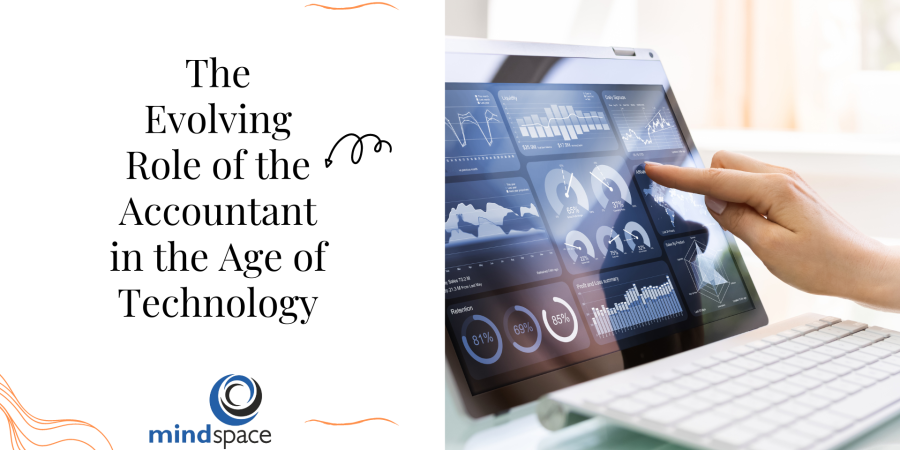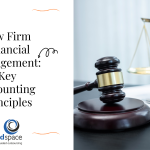The Evolving Role of the Accountant in the Age of Technology
- INTRODUCTION-
In the dynamic digital age, the role of accountants is experiencing a significant transformation propelled by technological advancements. As traditional accounting practices evolve, accountants are navigating a landscape filled with both challenges and opportunities. This exploration delves into the profound changes shaping the role of accountants in the age of technology. It scrutinizes key subtopics that define this paradigm shift, offering insights into how emerging technologies are redefining traditional functions. From automation and artificial intelligence to the integration of cloud-based systems, this evolution marks a pivotal moment where accountants are not only adapting to change but also leveraging technology to enhance efficiency and strategic contributions. The digital age demands a versatile skill set, and this examination aims to illuminate the multifaceted nature of the modern accountant’s role in an ever-evolving technological landscape.
- AUTOMATION AND ARTIFICIAL INTELLIGENCE (AI):
In the realm of accounting, the integration of automation and artificial intelligence (AI) is reshaping traditional practices, and revolutionizing the way financial tasks are performed. This paradigm shift not only streamlines routine processes but also empowers accountants to focus on higher-level analysis and strategic decision-making.
- Integration of Automation-
- Streamlining Routine Tasks: Automation technology, such as robotic process automation (RPA), is being employed to automate repetitive and time-consuming tasks like data entry, invoice processing, and reconciliation.
- Increased Efficiency: By automating manual processes, accountants can significantly increase efficiency, reduce errors, and accelerate the overall financial reporting cycle.
- Machine Learning in Predictive Analytics-
- Forecasting and Planning: Machine learning algorithms enable accountants to create more accurate financial forecasts and models by identifying patterns in historical data and adjusting predictions based on real-time information.
- Optimizing Resource Allocation: AI-driven predictive analytics assists in optimizing resource allocation, allowing organizations to allocate budgets more effectively and make informed strategic decisions.
- Personalization in Financial Reporting-
- Tailored Reporting: Automation allows accountants to create customized and highly detailed financial reports, catering to specific organizational needs.
- Real-time Dashboards: AI-driven dashboards provide real-time insights into key financial metrics, empowering accountants to respond promptly to changing business conditions.
- CYBERSECURITY IN ACCOUNTING-
In an era dominated by digital connectivity, the accounting profession faces unprecedented challenges in safeguarding sensitive financial information from cyber threats. The increasing reliance on digital platforms for financial transactions and data management underscores the critical need for robust cybersecurity measures.
- Protecting Financial Data-
- Data Encryption: Utilize strong encryption protocols to protect financial data both in transit and at rest. This ensures that even if intercepted, sensitive information remains unreadable without proper authorization.
- Secure Access Controls: Implement role-based access controls to restrict access to financial systems and databases. Only authorized personnel should have permissions based on their roles within the organization.
- Secure File Sharing Practices-
- Encrypted File Transfer: When sharing financial documents or sensitive information, use secure and encrypted file transfer methods. This prevents unauthorized interception and ensures the confidentiality of shared data.
- Access Controls for Shared Files: Implement access controls on shared files, limiting permissions to only those individuals who require access for their roles.
- Vendor Security Assessments-
- Assessing Third-Party Security: Evaluate the cybersecurity measures of third-party vendors who have access to financial data or provide accounting-related services. Ensure that their security practices adhere to established industry standards.
- Secure Vendor Agreements: Include cybersecurity requirements in vendor agreements, specifying expectations regarding data protection, encryption, and incident reporting.
- BLOCKCHAIN TECHNOLOGY AND CRYPTOCURRENCIES-
In the realm of accounting, the emergence of blockchain technology and cryptocurrencies represents a transformative shift with profound implications. While initially associated with digital currencies, blockchain’s decentralized and transparent nature is reshaping traditional accounting practices.
- Understanding Blockchain Technology-
- Decentralized Ledger: Blockchain operates as a decentralized and distributed ledger, allowing multiple parties to access and validate transactions without the need for intermediaries.
- Immutable Records: Once a block of data is added to the blockchain, it becomes immutable and resistant to alteration. This guarantees a significant degree of data integrity.
- Cryptocurrencies in Financial Reporting-
- Bitcoin and Beyond: Beyond Bitcoin, various cryptocurrencies are gaining acceptance in financial transactions. Understand the implications of incorporating cryptocurrency holdings into financial reports.
- Valuation Challenges: Address the challenges associated with valuing cryptocurrencies due to their volatility and the absence of standardized accounting practices.
- Regulatory Compliance Challenges-
- Evolving Regulatory Landscape: Navigate the dynamic regulatory landscape surrounding blockchain and cryptocurrencies. Compliance with evolving regulations is critical to avoid legal and financial repercussions.
- Anti-Money Laundering (AML) and Know Your Customer (KYC) Compliance: Address AML and KYC requirements associated with cryptocurrency transactions to ensure compliance with financial regulations.
- COLLABORATION WITH TECHNOLOGY SPECIALISTS-
In the ever-evolving landscape of accounting, the collaborative partnership between accountants and technology specialists is becoming increasingly crucial. The fusion of financial expertise with technological innovation not only enhances efficiency but also positions organizations to navigate the complexities of the digital era.
- Cybersecurity Partnership-
- Joint Cybersecurity Initiatives: Accountants and technology specialists must collaborate closely on cybersecurity initiatives. This partnership is essential to identify potential vulnerabilities, implement robust security measures, and respond effectively to cybersecurity threats.
- Implementation of AI and Automation-
- Joint Automation Initiatives: Collaborate on the implementation of AI and automation solutions to streamline routine accounting processes. Technology specialists can customize and optimize these technologies to meet the specific needs of the accounting function.
- Adapting to Technological Advances-
- Continuous Learning: Emphasize the importance of continuous learning for both accountants and technology specialists. Staying informed about technological advances ensures that collaborative efforts remain at the forefront of innovation.
- CONCLUSION-
In the ever-evolving accounting landscape, accountants stand at the crossroads of tradition and innovation. Embracing technological shifts becomes not just a necessity but a gateway to heightened efficiency, strategic insights, and delivering increased value to organizations. The dynamic evolution of the accountant’s role in the age of technology underscores their adaptability and pivotal contribution to guiding businesses through the intricacies of the digital era. Beyond being mere number crunchers, accountants emerge as indispensable contributors to organizational success in a technology-driven world. This transformative journey signifies more than just a change in tools; it symbolizes a fundamental shift in mindset, where accountants become architects of financial intelligence, leveraging technology to drive not only accuracy and compliance but also innovation and strategic decision-making.


